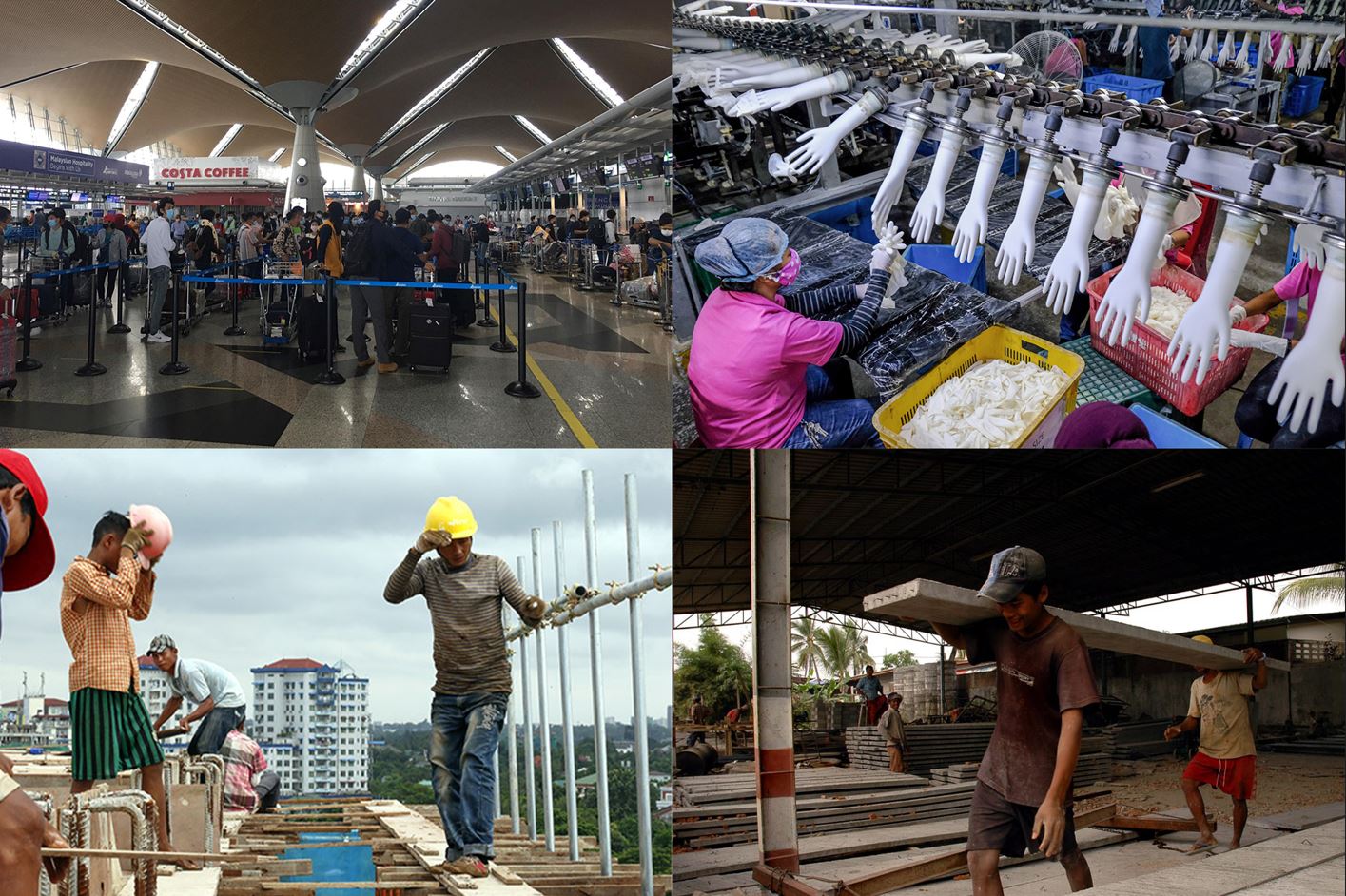March 3, 2024.
Local businessmen fear the Junta’s conscription law by the Military Council, will be disastrous for many sectors of the economy in the wake of the ongoing exodus of young people migrating, and endless queues outside Thai embassy in Yangon and the consulate in Mandalay to leave the country with all possible speed.
Youths opposed to military service under the Junta are fleeing en masse to foreign countries, such as neighboring Thailand, utilizing both legal means and illegal border crossing routes.
The exodus of the local youth population to foreign nations could profoundly affect the garment, construction, agriculture, import product, and service industries, with the looming threat of severe labor shortages A construction entrepreneur told Than Lwin Times that, as a result of the conscription law enforced by the Junta, the majority of workers have left the country, and those remaining are also making plans to emigrate, leading to a complete halt in operations for all businesses.
On February 10th, the coup Military Council announced the enforcement of the conscription law, which had been enacted more than a decade ago but remained dormant
According to inquiries by Than Lwin Times, following the activation of the conscription law by the Junta, an average of 3 to 5 out of every 10 individuals in workplaces have either already departed or are making preparations to emigrate abroad.
Another SME entrepreneur commented that the conscription law may result in negative consequences such as labor shortages, a significant decline in manufacturing activities, and the loss of skilled professionals, which could in turn lead to a loss of income for the nation.
“In the current situation, we are experiencing electricity outages, and commodity prices are rising exorbitantly too. If our workers leave, how can we sustain our businesses? We are in a dilemma. Without our employees, we will lose our livelihoods”, he said.
The Institute for Strategy and Policy – Myanmar (ISP-Myanmar), a research organization, has reported that the conscription law enforced by the Junta could result in halting all prospects of progress in Myanmar, and could come at a great cost to the economy and its manufacturing capacity.
Under the conscription law, individuals aged 18- 45 for men and 18 – 35 for women are mandated to serve in the military for a minimum of 2 years, with the potential for the duration of service to be prolonged to 5 years.
“In the country’s manufacturing sector, young labor sources can be seen as the driving force. Individuals around the age of 35 are particularly valuable in boosting the country’s GDP. If these individuals leave the country, our income will decline, our workforce will diminish, we will lose human resources, and expertise will be lost as well”, he elaborated.
Economists have also warned that the GDP will drastically decline as a consequence of the conscription law, and the country may plunge into negative territory across all sectors, surpassing the existing economic crisis.
According to a statement from the Thai Ministry of Foreign Affairs, within two weeks of the announcement of the conscription law, more than 7,000 visa applicants were recorded at the Thai embassy.
An individual assisting with labour affairs also analysed that due to the conscription law, panic among young people has risen, and with their mass exodus abroad, investment activities may cease, leading to a potential surge in job losses.
“Due to the conscription law, there is significant apprehension among youths and young adults. It is understandable that they are deeply concerned, given the law’s implementation amidst political instability and conflicts globally, prompting many to choose to leave the country. This could lead to further labor losses in the future. Furthermore, European countries have been instrumental in providing labour assistance to our nation, but these current developments may impact those opportunities. As a consequence, more businesses might cease operations. If investments halt, we could see a sudden increase in both labor and job losses”, he said.
The current coup leader, Min Aung Hlaing, has implemented the People’s Military Service Law, which was passed in 2010 under the former junta U Than Shwe but had not been enforced until now. According to this law, individuals who attempt to evade military service may face sentences ranging from 1 – 5 years in prison.
Currently, the Military Council has established committees at the central, regional and state levels to draft civilians into military service and is also pushing the formation of additional basic committees at the district, township, ward, and village levels as quickly as possible.
The Military Council has announced plans to enlist 5,000 new recruits in April following the upcoming Thingyan festival (Myanmar traditional new year celebrations), marking the first batch under the conscription law. The Junta also confirmed its aim to summon up to 60,000 military conscripts annually.
News-Than Lwin Times
Photo – CJ

